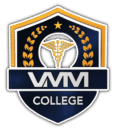Medical Laboratory Technicians (MLTs) play a crucial role in the healthcare system by performing various laboratory tests to assist in the diagnosis, treatment, and prevention of diseases. Their duties and responsibilities include a range of tasks related to sample analysis, quality control, and laboratory maintenance. Here is an overview of the key responsibilities of a Medical Laboratory Technician:
1. Sample Collection and Processing:
– Collect patient samples, such as blood, urine, or tissue, following proper protocols.
– Ensure accurate labeling, documentation, and transportation of specimens to the laboratory.
2. Laboratory Testing:
– Perform a variety of routine and specialized tests using automated equipment and manual techniques.
– Analyze samples to detect abnormalities, pathogens, or other indicators of diseases.
– Follow established procedures and protocols for each type of test.
3. Quality Control:
– Monitor and maintain the quality of laboratory tests through regular calibration and quality control procedures.
– Identify and troubleshoot issues with equipment or test results.
4. Data Analysis and Record Keeping:
– Record and maintain accurate and detailed laboratory test results.
– Enter data into laboratory information systems (LIS) for documentation and reporting.
– Prepare reports summarizing test findings for healthcare professionals.
5. Communication and Collaboration:
– Communicate with healthcare providers and other laboratory staff to relay information about test results or specimen-related issues.
– Collaborate with other healthcare professionals to ensure coordinated patient care.
6. Compliance with Regulations:
– Adhere to laboratory safety protocols and follow regulations, ensuring compliance with local, state, and federal guidelines.
– Handle hazardous materials and biohazardous waste in accordance with safety standards.
7. Maintenance of Laboratory Equipment:
– Perform routine maintenance on laboratory equipment and troubleshoot issues.
– Report equipment malfunctions and coordinate repairs with biomedical engineers or maintenance personnel.
8. Continuing Education:
– Stay informed about advances in laboratory technology, testing methodologies, and medical science through continuing education and professional development.
– Maintain relevant certifications and licenses.
9. Inventory Management:
– Manage and maintain laboratory supplies and reagents inventory.
– Order necessary supplies and ensure proper storage to prevent contamination or degradation.
10. Customer Service:
– Provide excellent customer service to patients, healthcare professionals, and colleagues.
– Answer inquiries related to laboratory tests and procedures.
11. Specialized Testing:
– Conduct specialized testing in areas such as microbiology, hematology, immunology, or molecular biology, depending on the laboratory’s focus.
Medical Laboratory Technicians play a vital role in the diagnostic process, and their accurate and reliable test results contribute significantly to patient care. Their work is integral to the overall functioning of healthcare institutions and the well-being of patients.
